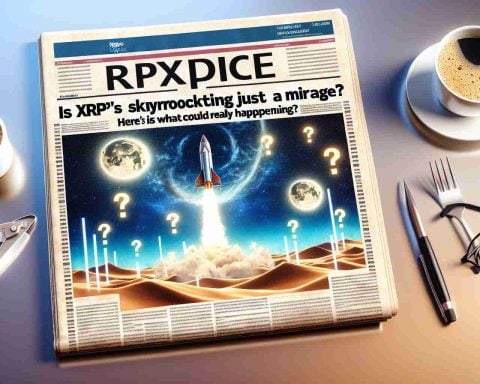In the ever-evolving world of cryptocurrency, savvy investors are constantly on the lookout for the next big opportunity. With a multitude of options available, choosing the best coin to invest in can be a daunting task. However, in 2023, Bitcoin (BTC) continues to stand out as a top contender.
Bitcoin, often referred to as digital gold, remains the most established and widely recognized cryptocurrency. Since its inception in 2009, Bitcoin has consistently proven to be a resilient asset, weathering market volatility and gaining mainstream acceptance. Its decentralized nature, limited supply of 21 million coins, and widespread adoption make it a solid long-term investment.
Moreover, Bitcoin’s role as a store of value has been compared to traditional assets like gold, with many investors including it in portfolios to hedge against inflation. In 2023, Bitcoin’s integration into financial systems worldwide has reached new heights, with various countries exploring regulatory frameworks and institutions offering Bitcoin-based products to clients.
While alternatives such as Ethereum (ETH), Solana (SOL), or Cardano (ADA) present exciting opportunities due to their innovative technologies and smart contract capabilities, Bitcoin remains the cornerstone of the cryptocurrency market. Its proven track record and ongoing development, such as the integration of the Lightning Network to improve transaction speeds, reinforce its position as a top investment choice.
As always, potential investors should conduct thorough research and consider individual risk tolerance, but if you are seeking the cornerstone of digital assets in 2023, Bitcoin appears to be a choice worth considering.
The Untold Impact of Bitcoin: Revolutionizing Economies and Sparking Debate
Bitcoin’s rise is reshaping more than just investment portfolios — it’s influencing global economic landscapes and societal structures. While its popularity as a digital asset is well-documented, the underlying effects on real-world scenarios are both intriguing and controversial.
Transforming Economies
One must consider how Bitcoin adoption is pushing nations towards financial modernization. Nations facing hyperinflation, like Venezuela and Zimbabwe, find Bitcoin a viable alternative to struggling national currencies. It empowers individuals who lack access to traditional banking, thus promoting financial inclusion.
Environmental Challenges
However, Bitcoin mining’s environmental footprint raises significant concerns. The energy-intensive process has come under scrutiny, with estimates suggesting Bitcoin mining consumes as much electricity annually as some small nations. This raises questions about sustainability and has prompted discussions on cleaner, more efficient mining technologies.
Regulatory Maze
Is Bitcoin’s decentralized nature a double-edged sword? On one hand, it offers freedom from governmental control, fostering an unregulated financial environment. On the other, it complicates the implementation of regulations and taxes, as governments struggle to balance innovation with control.
Advantages and Disadvantages
The advantages of Bitcoin include increased transparency in financial transactions and independence from central banks. Yet, its volatility and susceptibility to market manipulation pose significant risks.
Looking Ahead
How will Bitcoin shape the future financial landscape? With ongoing debates and varying governmental responses, Bitcoin’s role continues to be a hot-button issue. Will it unify global economies or further divide them along regulatory lines?
Explore more on this topic at Bitcoin and CoinDesk.

















